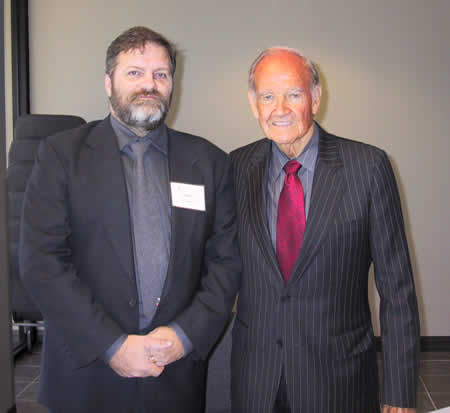About three years ago, as it became clear that my job was in its final months, I started thinking about possible exit strategies and new careers. Selling my multimedia development and programming business wasn’t a particularly viable option, if it had been worth anything, I wouldn’t have taken a job in the first place.
I’ve always wanted to be a writer. I wrote the first piece I was paid for at 16, and I ran my own book review magazine for a couple of years after I left the bookselling business, but it wasn’t until I did a technical piece for Step-by-Step Graphics that I actually got a check again. Then, for about six years, until 2002, I was writing books, articles, and online pieces on Flash and Director programming like nobody’s business. But I wasn’t doing it full-time and I certainly wasn’t making a living at it, two things that sort of fed into each other. Plus, I was writing computer tutorials, a market that went through constant book-and-bust cycles (one of which was the great tech bubble shake-out of 2000-2001). What could be worse?
Well, in 2005, I figured out what could be a worse market. Not intentionally, no, but just by my own stupid luck. I thought one option for the future might be to make a clean break with my career such as it was, and try to write a book on politics. In-between looking for work and worring about the future, I researched a book on Democratic Party foreign policy and its path in the aftermath of the 1972 defeat of Sen. George McGovern by President Richard Nixon, the man who was forced to resign from the White House less than two years after winning an Electoral College landslide. I wrote a couple of sample chapters, shopped it around to some publishers and agents, and ran into a wave of disinterest you can probably imagine, despite the timeliness of the premise, with the 35th anniversary of McGovern’s defeat coming up (at the time), the then-recent turnover of Congress to the Democrats, and the incredible low approval ratings of President George W. Bush. But no bites. Much time, energy, and money down the drain.
Basically, the impetus behind the book was that I’m sick of hearing things like “Only Nixon could go to China.” The reason Nixon was the one who could go to China was Nixon. If anyone else had gone to China, Nixon would have been leading the tar-and-feather brigade, jowls a-wobbling, howling that they’d “gone soft on Communism.” Nixon and the people like him were — on this side of the pacific at least — the entire reason countries like China couldn’t be approached a decade earlier when, say, McGovern suggested it, even before the Chinese Cultural Revolution. It may not have worked, Mao and the people around him certainly could have ignored any opening, but if it worked in ’72 it might have worked in ’66. McGovern’s first speech on the floor of the Senate was about opening relations with Cuba — less than two years after the Missile Crisis. What have the intervening forty-five years of embargo done for us or for the people of Cuba? But nobody was interested in that. At least I couldn’t find anyone.
The one positive thing that did come out of that sojourn for me, though, was the opportunity to meet McGovern, even for a little bit, at the conference held every year in South Dakota, on the first Tuesday of November in 2007.

Today’s George McGovern’s 87th birthday. Happy birthday, Senator.
